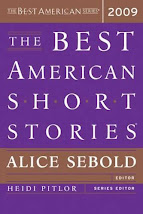Friends,
If you're following my book diet, you'll notice I've read Ironweed and Knockemstiff. Two very different books, one a novel of hardcore bums with a bit of plot though, the other reveling in Harry-Crewsian violence and strangeness. Both of those books came recommended by a few people. Well, Knockemstiff was mostly a Diana recommendation, though everyone seemed to love Ironweed, and assumed I would also love it. Of course, either because contrary by nature, which is an adult word for bratty, I didn't fall in love with either of them.
First, let's talk about Knockemstiff. I understand why this book of short stories should appeal to me. Low class people doing low class things struggling mightily in the low class way. And, I can look at the book and objectively see parts that are good writing. Quality, interesting details, some strong characterizing dialogue, the kind of rising, big-endings that I like in stories, you know, stuff where if you saw it in a workshop you'd circle it or put a star next to it. But, also, there was enough stuff in their to enrage my MFA sensibilities, where I want to cross out or leave a snarky comment alongside. I couldn't really distinguish between the characters in a lot of the stories, so they all blurred together. I know some of the characters overlapped between the stories, but I couldn't remember who was who because they were all so damn alike. All the women, save one, were slutty or crazy. All the dads were crazy and violent. Also, vapid similes that don't add anything abound. Sure, saying something "smells like dinosaur blood" may be interesting sounding, but how does that enhance the sensory experience of what you are describing? And it sure didn't seem to connect thematically with what was going on in that story (it was describing oil fumes rising through concrete at an old gas station).
But truly, the most egregious error of this book that straight ruined my experience with it was a consistent grammatical error. Those who've been through the Magnuson grammar mill know this one, but it's that participle phrase leading a sentence in the adverbial slot. Observe. "Reading these stories, I had a bad cause of jimmy-legs." See that little -ing clause at the beginning? How that works is that that entire clause acts adverbly on the rest of the sentence, meaning that those two things happens simultaneously. It's not one action, then another. Most times when you see that in sentences the writer's fuck it up because the action in the clause and the action in the rest of the sentence can't possibly be going on at the same time. Every damn story. Yes, Every Damn Story makes this mistake. It jarred me clear out of the story. I'd be reading along, taking in all this stuff going on, enjoying most of it, and then boom...that ugly grammar mistake. Maybe I'm complaining about webbed feet on a prostitute here, you know, but dammit, I paid for this, and I don't like webbed feet, snip that shit.
Many of these stories are first person, or a very close limited third-person (which is my preferred POV for this lower-class writing because you don't want breathing room for the audience), so maybe you could excuse some of this shit as "voice" but, shit, every voice in this book makes that mistake? Speaks to that failing in the book about not differentiating between the characters in the story clearly enough.
As for Ironweed, I only had one problem. The book felt a little off. I know it's heralded as some great book, and I see why people think that, but there's just so much of this that screams "GOOD WRITING" about as loud as it can, comes on the page announcing it's presence gooey with literary authority that, for me, it lessens the abject situation these characters are in. Plus, some of the dialogue, particularly between Rudy and Francis, didn't feel quite natural to me, like they were just set up for jokes, like it wasn't quite coming from the character. (By the way, the Rudy-Francis relationship reminded me greatly of the Sully-Rub friendship in Nobody's Fool, though I liked the relationship in Nobody's Fool more). There were other smaller beefs I had, like I expected Helen to have more to do other than die, suddenly I might add. But, maybe I just read it too quick, but I understand why people like it, and I did enjoyed it, too, but I surely wasn't amazed and I think that is all attributable to this nagging feeling that it just wasn't authentic, this pervading falseness to the whole exercise, which must have something to do with those literary stretch marks on this thing.
Oh, and the version I read was a mass-market paperback version that came out around the time the movie of Ironweed did. Inside the book was 8 pages worth of pictures from the movie. That made me think of two things. First, do they still do that? Insert photos from the movie into books? I know they change the covers, but I don't think they go so far as to put pictures in the book, but I remember that being quite normal. Man, another thing the internet killed, eh? Another thing, it says on the book that it is now a "Major Motion Picture" and I got to thinking, all books that get turned into movies carry that "Major Motion Picture" label, right? So, what's so "major" about those motion pictures? And how does one quantify the value of "major"? Big studios? Big actors? If a bunch of nobodies snatch up the book rights and make a movie that gets released in theaters, will it have to be advertisted as a "Minor Motion Picture"?
viva el mustache
November 1, 2008
Iron Stiff
![]() Responsible Party:
Bryan
at
9:18 AM
Responsible Party:
Bryan
at
9:18 AM
Subscribe to:
Post Comments (Atom)









1 comment:
If you're looking for another book about bums, and want to shift over to nonfiction, I highly recommend "Another Bullshit Night in Suck City" by Nick Flynn. I read it coming over to China and I loved it.
I really dug "Ironweed." Oh, and I think they still do put movie pics inside books. I don't have an example, but I think they still do.
Let us know what you think of the Mark Richard book. It seems like you're reading everything we read in Contemp. Prose last spring!
Post a Comment